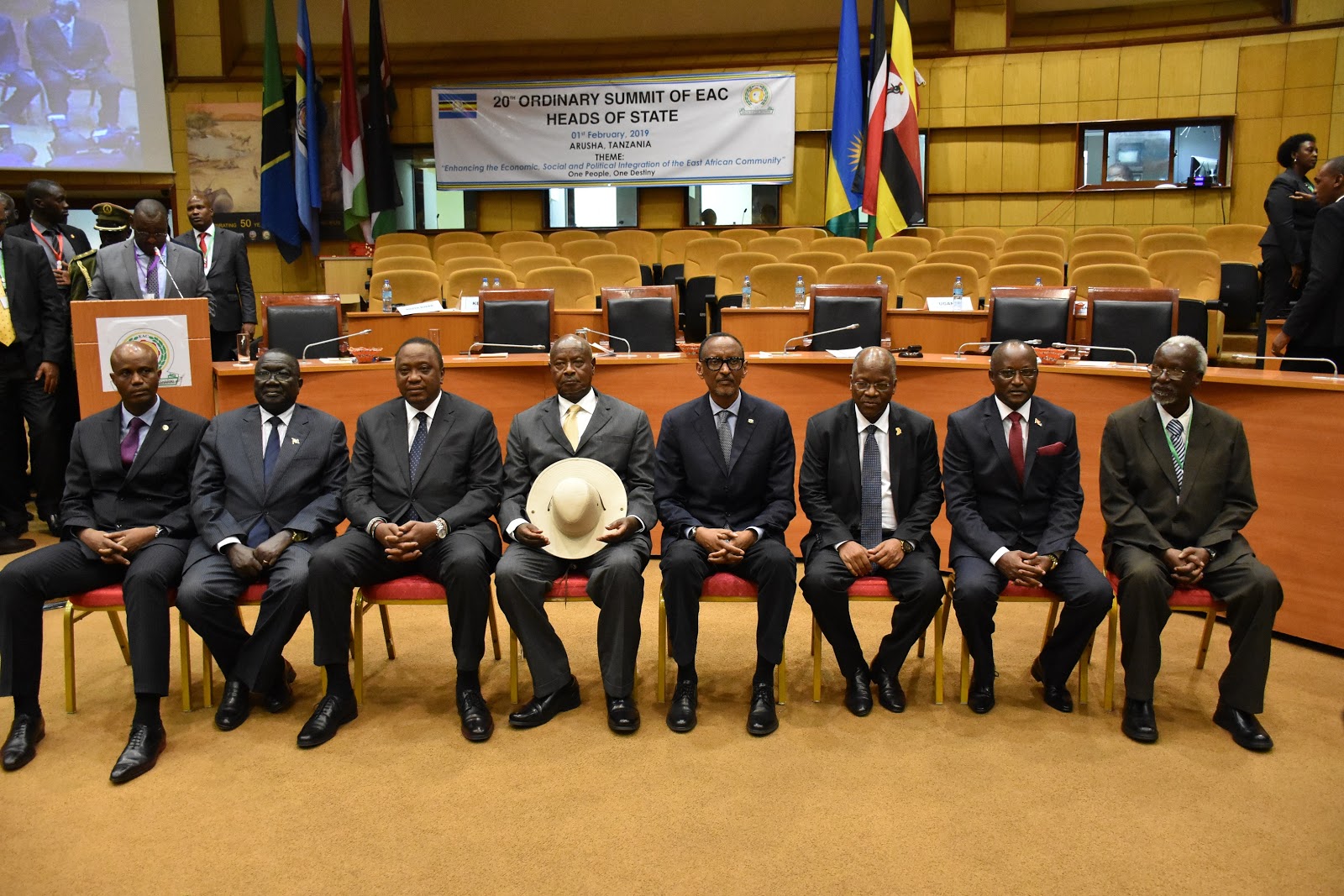EAC Heads of states at a previous summit. Courtesy: EAC Secretariat
Impasse over EAC-EU Trade Deal threatens Regional Unity
An impasse over the Economic Partnership Agreement between the European Union and the East African Community is brewing tensions between members states that have long pledged to work as a common market. Despite requesting an extension after the deal expired in October 2016, only two countries have signed the deal, while the rest have either refused or are simply waiting for events to play out.
The Economic Partnership Agreement (EPA) grants products made within the East African Community member states total access to the European Union market, with 82.6 percent of imports from the EU allowed into the EAC market. The remaining 17.4 percent of imports from the bloc labelled “sensitive,” and largely consisting of farm and dairy products would be progressively liberalised within 15 years from when the agreement comes into force. Amongst the five East African Community member states, Kenya has the biggest stake in the EPA because it is a middle-income economy and, without the protection of the deal, it would have to start paying duty for its exports to Europe. European Union trade regulations only provide countries classified as Least Developing Countries duty-free access to their market, without the necessity of a trade deal.
For the agreement to become enforceable, all the members have to sign and ratify it.
However, only Kenya and Rwanda have signed the deal. Tanzania has refused to consider the trade pact, arguing that the agreement will have serious consequences for its revenues and the growth of its industries.
“Tanzania has always felt threatened that Kenya stands to benefit enormously from the deal, and use its needs for mechanized products as cover to boost exports.” Arnold Kitavi, a trade analyst, told Ventures Africa. “While the agreement provides many advantages to Tanzania, its past relationship with Kenya, especially on the economic front, is the real reason behind the current impasse.”
Burundi too has refused to sign the agreement due to its deteriorating relations with Europe. The European Union has frequently criticized the Bujumbura government over its flailing human rights record and state of media freedom. Meanwhile, Uganda has argued that signing the pact as individual countries would compromise the unity of the region, hence its decision to wait it out for everything to play in.
Seeking alternatives
As the impasse has dragged on for three years now, Kenya has pursued other options. It has been lobbying its EAC partners to enforce the EPA on an individual basis rather than as a bloc to allow those that have not signed to sort out their issues. At their last Summit in February, the EAC heads of state gave Tanzania four months to seek more clarification from the EU. But Kenya’s President Uhuru Kenyatta desperate to see the bloc ink the deal in order to guarantee continued market access for Kenyan exports to Europe, tabled a proposal that after four months, the EAC countries willing to sign may do so as individuals, a principle referred to as variable geometry.
But the EU is not up for this idea. It has always affirmed that the deal has “to be signed and ratified by all member states.” On its side, it has provided the clarifications that Tanzania sought before the end of the four-month period and also suggested a joint meeting to dispel any remaining misunderstanding. However, the government in Dar es Salaam has never responded to the offer. Many regional policy makers such as the Southern and Eastern Africa Trade Information and Negotiation Institute (SEATINI) have also argued that this alternative formula would impair the EAC’s regional integration process.
While negotiations have stalled over the deal, all the countries have maintained trade with the EU. All EAC countries are accessing the EU market duty and quota free, with Kenya through the Market Access Regulations (MAR) 1529 that allows developing countries that are still negotiating EPAs to access the EU market until the agreement is signed.
The others, which are considered Least Developed Countries, are enjoying access through the Everything but Arms arrangement. “Kenya’s market access to the EU remains safe in the foreseeable future until all EAC partner states sign the EPA,” said Dr Kiptoo, the Principal Secretary at the Kenyan State Department of Trade.
Since its formation, the East African Community has ridden many challenges along the way. It is a wait and see game if this one, that involves its largest export destination will be navigated successfully together.

